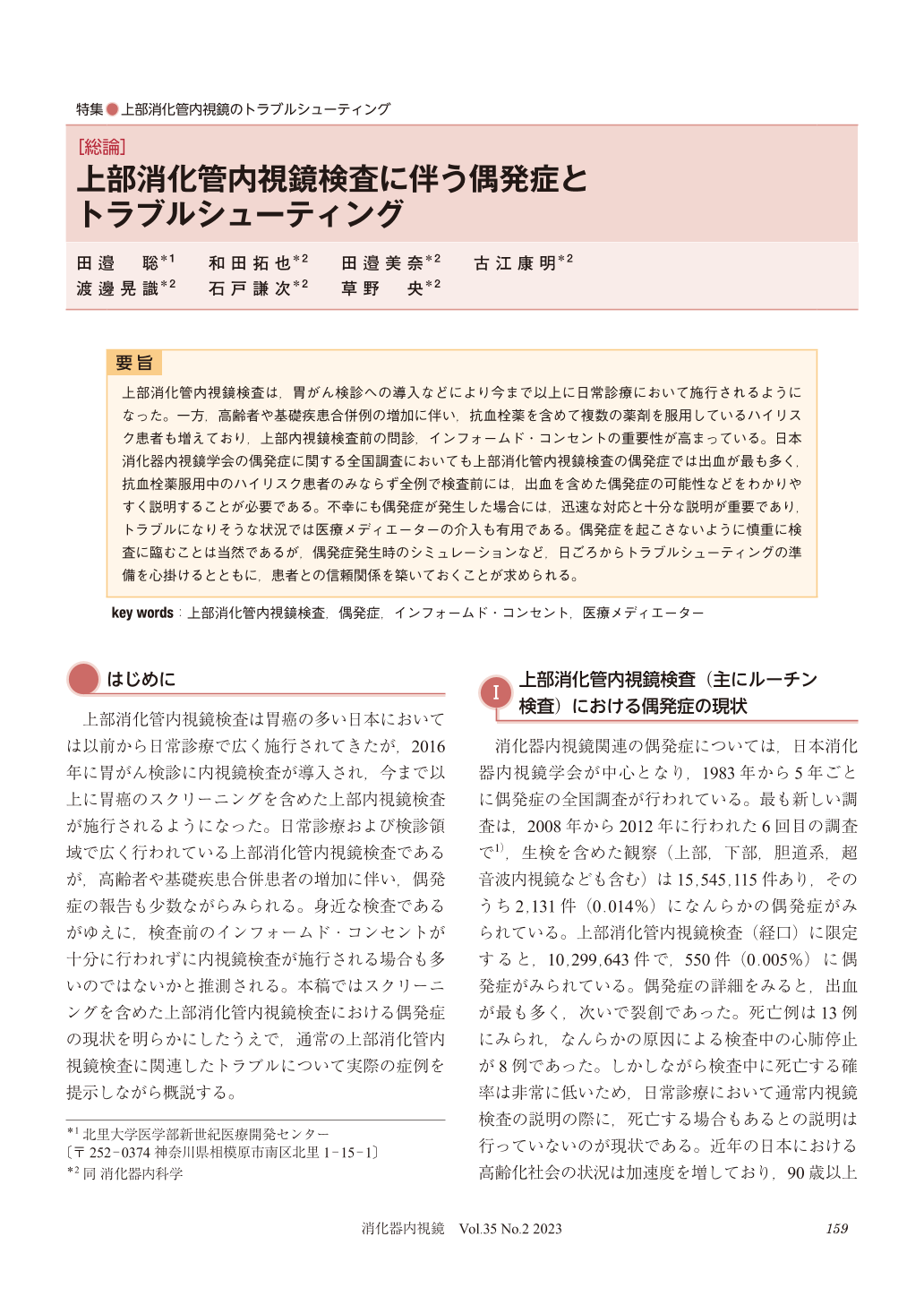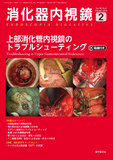Japanese
English
- 有料閲覧
- Abstract 文献概要
- 1ページ目 Look Inside
- 参考文献 Reference
要旨
上部消化管内視鏡検査は,胃がん検診への導入などにより今まで以上に日常診療において施行されるようになった。一方,高齢者や基礎疾患合併例の増加に伴い,抗血栓薬を含めて複数の薬剤を服用しているハイリスク患者も増えており,上部内視鏡検査前の問診,インフォームド・コンセントの重要性が高まっている。日本消化器内視鏡学会の偶発症に関する全国調査においても上部消化管内視鏡検査の偶発症では出血が最も多く,抗血栓薬服用中のハイリスク患者のみならず全例で検査前には,出血を含めた偶発症の可能性などをわかりやすく説明することが必要である。不幸にも偶発症が発生した場合には,迅速な対応と十分な説明が重要であり,トラブルになりそうな状況では医療メディエーターの介入も有用である。偶発症を起こさないように慎重に検査に臨むことは当然であるが,偶発症発生時のシミュレーションなど,日ごろからトラブルシューティングの準備を心掛けるとともに,患者との信頼関係を築いておくことが求められる。
Nowadays, in normal medical practice, esophagogastroduodenoscopy (EGD) is performed more frequently than ever before due to the introduction of gastric cancer screening and other factors. However, there is an increase in the number of high-risk patients taking multiple medications, including antithrombotic agents, owing to an increase in the number of elderly patients and patients with underlying diseases. This has increased the importance of interview and informed consent prior to performing EGD. According to a nationwide survey conducted by the Japanese Society of Gastroenterological Endoscopy, bleeding is the most common complication during EGD. Therefore, it is necessary to explain the possibility of bleeding not only to high-risk patients taking antithrombotic drugs but to all patients in an easy-to-understand manner before the procedure. In the unfortunate event of complication, prompt action and adequate explanation are important. The intervention of a medical mediator may be helpful in situations where trouble is likely to occur. While it is natural to take precautions to prevent complications from occurring, it is also necessary to be prepared for troubleshooting on a daily basis, including by simulating potential complications, and to build a relationship of trust with patients.

© tokyo-igakusha.co.jp. All right reserved.


